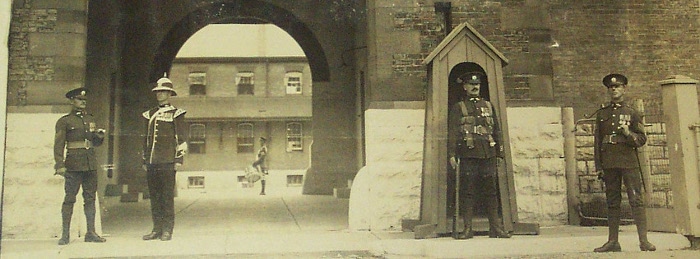Topic: Drill and Training

Principles of Training (1922)
…while skill is being acquired, the fostering of moral, which includes the fighting spirit and a high state of discipline, must be borne in mind, so that the two qualities may grow together.
Infantry Training, Vol. I; Training, 1922, Provisional
1. The training of an army has but one object in view—the defeat of the nation's enemies in war.
The foundation of successful training is mutual confidence between all ranks.
2. All past wars have proved that victory can be won only as the result of skilled leadership and bold offensive action, while recent experience has shown that the increased decentralization of command necessitated by the power of modern weapons calls for increased initiative on the part of subordinate leaders and increased tactical knowledge on the part of the men.
3. The success of a campaign depends, therefore, on sound training and skilful leadership, and on the degree to which, as a result of this training and leadership, the troops possess:—
i. The will to go forward.
ii. The skill to defeat the enemy.
These two military qualities reinforce each other, but the one cannot replace the other; both are necessary and both can be developed. Upon their development all training for battle must be based.
4. The pages of this manual are mostly devoted to teaching the leader to lead and the soldier to fight. But throughout the details of training; while skill is being acquired, the fostering of moral, which includes the fighting spirit and a high state of discipline, must be borne in mind, so that the two qualities may grow together.
5. An army can exert its full power only when all its parts act in close combination. Infantry is the arm which in the end wins battles. It is the arm which can break down the last strands of resistance and seize and hold a hostile position. But against a force of all arms equipped with modern mechanical weapons it can achieve nothing without the support of other branches of the service. Throughout their training, therefore, all ranks of infantry must be taught to realize the close relationship between their own rôle and that of the other arms in battle. They must understand the methods employed by cavalry, engineers, aircraft, artillery and tanks to support them; they must appreciate the importance of close liaison and intimate co-operation during the preliminary arrangements for a battle and throughout every stage of the action.
To assist in the attainment of this object higher commanders will arrange for the temporary attachment of infantry officers and N.C.Os. to branches of the service other than their own. Similarly officers and N.C.Os. Of other branches will be temporarily attached to infantry units. Higher commanders will create opportunities for training the various arms together by means of combined exercises and operations.
6. It must be the aim of all officers, warrant officers, and N.C.Os. to fit themselves to carry out efficiently the duties of the rank next higher than their own.
7. The principles of training and fighting herein enunciated are based on wide experience and are well-established. But principles on paper apart from their application have little value. Their usefulness depends mainly upon the effort of the commander to translate them into the every-day life of his men. The virtue most to be cultivated in training, as in war, is energy. Folded hands and fatalism bring certain failure. To do nothing is to do something definitely wrong. Energy in training, energy in fighting, pride in his work, combined with strict discipline, and pride in and sympathy for his men are the commander's sure ingredients to success.

